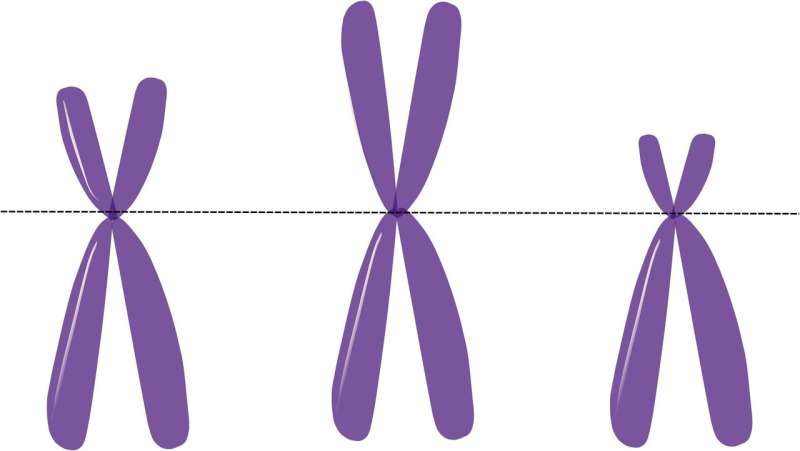Y chromosome loss causes heart failure and death from cardiovascular disease

Loss of the Y chromosome in blood cells of men is associated with disease and mortality, but no clear, causal relationship has been identified. Now, researchers from Uppsala University show in an international study in the journal Science that loss of the Y chromosome in white blood cells causes development of fibrosis in the heart, impaired heart function and death from cardiovascular diseases in men.
Men die on average several years younger than women, a difference that previous studies have linked to loss of the Y chromosome in the white blood cells of men. This genetic change, that occurs during life, is called mLOY (for mosaic Loss Of Y). It is very common and detected in at least 20% of 60-year-olds and 40% of 70-year-old men. Previous studies have shown that men with mLOY in their blood have increased risk of developing age-related diseases such as cancer and Alzheimer's disease. The current study establishes that men with mLOY in the white blood cells also have an increased risk of dying from cardiovascular diseases, the most common cause of death in humans.
It has not been known previously, however, whether mLOY in the white blood cells has a direct effect on disease progression in other organs. The current study describes a new causal relationship when the researchers used the gene-editing tool CRISPR to generate mouse models with mLOY in their white blood cells. They found that mLOY caused direct damage to the animals' internal organs and that mice with mLOY had a shorter survival than mice without mLOY.
"In the mouse models used in the study, the mouse Y chromosome was eliminated to mimic the human mLOY condition and we analyzed the direct consequences that this had. Examination of mice with mLOY showed an increased scarring of the heart, known as fibrosis. We see that mLOY causes the fibrosis which leads to a decline in heart function," says Lars Forsberg, Associate Professor at the Department of Immunology, Genetics and Pathology at Uppsala University, and co-leader of the study together with Professor Kenneth Walsh, University of Virginia, U.S.
The researchers were also able to corroborate the causal effect in mouse via epidemiological studies in humans, where they found mLOY to be a new significant risk factor for death from cardiovascular disease in men. These studies were performed using data from UK Biobank, a database with genomic and health information from half a million normally aging individuals aged 40–70 years at the start of the study. Men with mLOY in their blood at the start of the study displayed an approximately 30% increased risk of dying from heart failure and other types of cardiovascular disease during approximately 11 years of follow-up.
"We also see that men with a higher proportion of white blood cells with mLOY in the blood have a greater risk of dying from cardiovascular disease. This observation is in line with the results from the mouse model and suggests that mLOY has a direct physiological effect also in humans," says Lars Forsberg.
The study describes for the first time a mechanism by which mLOY in blood causes disease in other organs and further identifies a possible treatment. It is shown that mLOY in a certain type of white blood cell in the heart of mice, so-called cardiac macrophages, stimulates a known signaling pathway that leads to increased fibrosis. When the researchers blocked this signaling pathway, the pathological changes in the heart caused by mLOY could be reversed.
"The link between mLOY and fibrosis is very interesting, especially given the new treatment strategies for heart failure, pulmonary fibrosis and certain cancers that aim to counteract the onset of fibrosis. Men with mLOY could be a patient group that responds particularly well to such treatment," adds Lars Forsberg.
More information: Soichi Sano et al, Hematopoietic loss of Y chromosome leads to cardiac fibrosis and heart failure mortality, Science (2022). DOI: 10.1126/science.abn3100. www.science.org/doi/10.1126/science.abn3100
Journal information: Science
Provided by Uppsala University



















